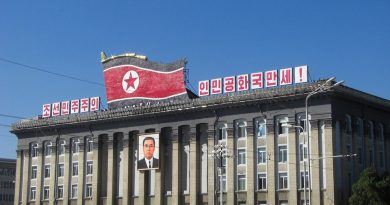Angela Merkel to Serve Fourth Term
By Nathaniel Purtell
Staff Writer
On the March 14, Angela Merkel was sworn in as German chancellor for the fourth time. The Bundestag confirmed her re-election by 364 to 315 votes, reflecting the increasing dissatisfaction among Germans concerning her leadership, according to BBC News. Merkel, the steadfast leader of a united Germany since 2005, is facing increasing pushback as the country becomes concerned about her ability to effectively represent public interests.
Born in East Germany and having a background in a STEM field, Merkel has long been thought of as a prime example of strong female leadership. Under her direction, the German economy has flourished, solidifying her as a leader both economically and ecologically in the European Union. As part of the Christian Democratic Union/Christian Social Union parties (CDU/CSU) parties, she ran a center left government focused on a robust economy.
Earlier this year, the previous “Jamaica Coalition” had fallen apart. Named so because the colors of the Jamaican flag: green, black and yellow, signified the coalition between the CDU/CSU, the Free Democratic Party (FDP), and the Green party. In the past this strong coalition was able to make significant reforms and progress but the government suffered a loss of confidence as the coalition broke up earlier in 2017 after failing to include the far-right Alternative für Deutschland [Alternative for Germany] (AfD) party.
AfD has posed a significant challenge to Germany. The far right party has gained the 5% electoral threshold to be able to sit in the Bundestag. The party has done particularly well in conservative areas in the East. Though the gaps between the East and West have closed significantly over the years of reunification, there remains many way in which the West of Germany sees more prosperity. Many in the East of Germany see Merkel as betraying their interests and more conservative values, even though Merkel is from the region.
During the 2015 migrant crisis, Merkel pushed a policy of open arms to refugees in her phrase “We can do it,” according to DW. Initially, the response was positive, with tens of thousands of Germans volunteering to cope with the massive influx of refugees and migrants entering the country. Since that moment, approval of her policy has greatly fallen. The country shortly after began to enforce border controls, become stricter on approving refugee statuses, and began to deport those who were found not to have legitimate reason to live in the country.
The country had accepted over 1,000,000 migrants in the year 2015, the number significantly reduced over the next three years as the dream of Germany being a safe harbor for all evaporated. After a terror attack on a Berlin Christmas market and a string of smaller attacks, the public posture on immigration has been significantly more negative. This is the primary reason for the rise of the far-right AfD.
The response to the fall of the Jamaica coalition has been constructing a new coalition, comprised of the CDU/CSU and Social Democratic Party of Germany (SPD) parties. Negotiations were strained and coalition will be significantly less powerful than the previous ruling coalition. The coalition, fragile at best, has prioritized issues such as pensions, healthcare, and migration, but some analysts believe the issues outlined in their coalition deal to be potentially ‘explosive’, in the words of Detlef Seif, EU/CDU spokesman, reports Reuters.
Before the election some had called for Merkel to not run for a fourth term. A host of new anxieties and lack of confidence in Merkel and her coalition perhaps signify a shifting in the political foundations of the country.


